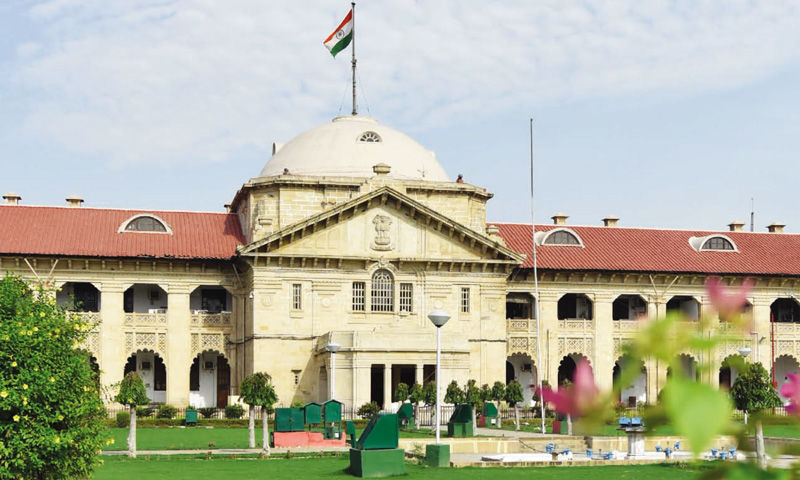Varenya Vaish
Khurshidurehman S. Rehman v. State Of U.P. And Another
The Allahabad High Court precisely stated that based on numerous precedents, a direction for investigation, using the powers vested in section 156 CrPC can only be given if a cognizable offence is highlighted in the case.
The court reached the aforementioned conclusion while dismissing a writ petition made by the Petitioner, Khurshidurehman S. Rehman, challenging the order passed by the trial court as well as the revisional court who rejected an application filed under section 156 (3) CrPC. The petitioner had moved an application under the aforementioned section where an allegation was made against Respondent No.2, the leader of Bhartiya Janata Party, stating that the party put forth false promises in their Election Manifesto-2014, which was promulgated by them in the parliamentary election conducted in the year 2014. The trial court as well as the revision court rejected the application and held the same view, and so did the Allahabad High Court.
Contentions for the Petitioner were made by the learned counsel, Sri Jai Prakash Prasad and for the Respondent, by the Senior Advocate (Additional Advocate General) Sri Manish Goyal, assisted by advocate Sri AK Sand. The decision of setting aside the writ petition was carried out by the Honourable Justice Dinesh Pathak.
In the said case, the petitioner had accused Respondent no.2 the head of Bhartiya Janata Party, of wooing the voters with several such promises, made in the party’s Election Manifesto-2014, that they miserably failed to fulfil. An application made under section 156(3) CrPC, by Petitioner stated that Respondent No.2, based on making false promises, has committed crimes of fraud, cheating, criminal breach of trust, dishonesty, defamation, deceiving and falls allurement. This was not only rejected by the Additional Chief Judicial Magistrate, Aligarh but also, by the revision court when the Petitioner applied for the application to be revised.
The learned counsel for the petitioner stated that not only did both the lower courts illegally reject the application made under Section 156 (3) CrPC without applying their mind but also the allegations put against the respondent that is of non-fulfilment of promises ascertained in the Manifesto2014, makes it an absolute criminal case where Respondent no.2 should be summoned and tried under different sections of IPC.
The learned senior counsel for the Respondent focused on the fact that non-fulfilling of promises as mentioned in the Manifesto-2014 does not constitute a cognizable offence. It was further contended that not fulfilling conditions mentioned in the party’s manifesto does not fall under the purview of any law, therefore, it cannot be enforced under any legislation. These contentions were based on the cases of Vivek Kumar Mishra v. Union of India Cabinet Secretary and Others, Mithlesh Kumar Pandey v. Election Commission of India and Others, and P. Ammavasai v. Chief Election Commissioner.
The learned senior counsel further contended that the scope of section 156(3) CrPC must be made clear. Referring to the decisions in Anil Kumar and Others v. MK Aiyappa and Anr., Ramdev Food Products Private Limited v. State of Gujarat, CREF Finance Ltd. v. Shree Shanthi Homes, it has been said that the application of mind by the Magistrate should be reflected in the order passed under the said section. If the Magistrate has dismissed an application, it is because they found nothing substantial to proceed ahead with.
The learned senior counsel further stated S. Subramaniam Balaji v. The Government of Tamil Nadu and Others, to assert that making any kind of promises in the Election Manifesto can neither be considered as gospel truth nor can stand to be the basis of any cognizable offence.
Based on the above, the Allahabad High Court stated:
“Non-occurrence of any cognizable offence is also one of the paramount conditions which averted the courts below from issuing a direction for investigation in the exercise of powers under Sections 156 (3) CrPC. In this conspectus as above, I do not find any substance in the present writ petition. No justifiable ground has been made out warranting indulgence of this Court in the exercise of its supervisory jurisdiction under Article 227 of the Constitution of India to interfere in the impugned orders.”
Hence, the petition was dismissed.
Click here for the full judgement.

